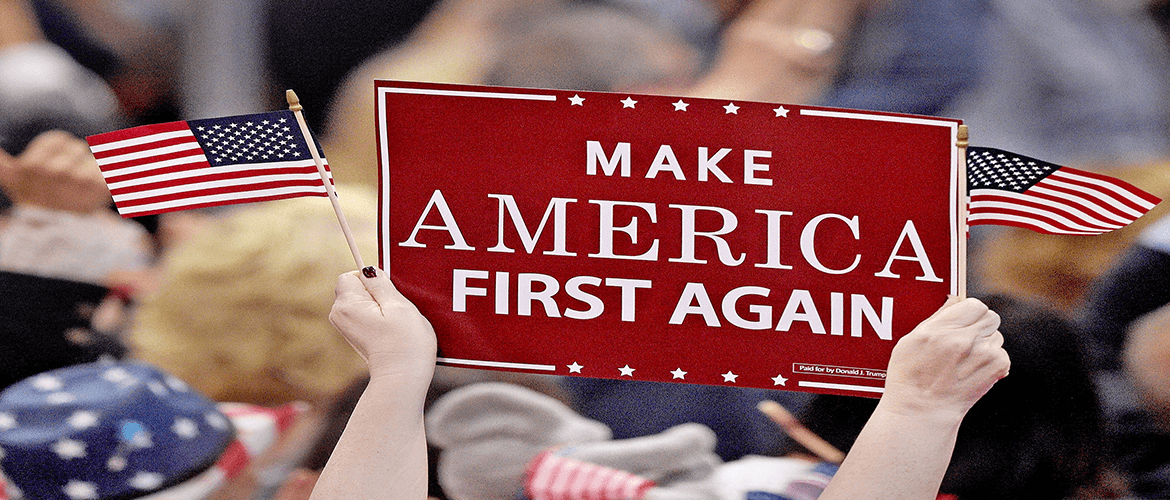America Must Continue to Be Guarantor of Security for Its Allies
August 28, 2020 | Expert Insights
David Ignatius, Associate Editor, Washington Post and author of the “Paladin” was a panellist in the 82nd t Synergia Forum’s 18th Virtual Forum on U.S Foreign Policy in Asia: The Road Ahead. This article is based on his views expressed during the discussions.
The approach of the Trump administration towards China has only resulted in increasing hostility between the two powers and has sparked off policies that are mutually destructive. Renowned journalist and author David Ignatius warned that there is an urgent need to “be careful about military entanglements”.
In the current climate of conflict and COVID-19, it is imperative that the president of the U.S. in 2021, whether Joe Biden or Trump, undertakes steps to pave a new path to deal with Beijing. It has to be one that can balance the American principles of democracy, human rights, and rules-based world order, with the need for an economically strong China, thus acting as the traditional engine for global economic prosperity.
SOUND COUNSEL
David Ignatius echoed the sound counsel given to George W.Bush by the late Brent Scowcroft, former U.S. National Security Advisor, before the invasion of Iraq, “to avoid military entanglements.” While the U.S. has a proud military history, in recent years, its experience must teach it about the unavoidable difficulties in land-based military conflict, a lesson so forcefully driven home in Vietnam. While getting involved in a military conflict in any region may not pose a problem for a global power like the U.S., finding the appropriate exit strategy is far more complex, something which continues to be seen in the Middle East.
To avoid a land conflict, even if the U.S. projected its hard power through its powerful navy or air force to protect its interests in the South China Sea, things could escalate out of hand disastrously. American military technology, while imminently suitable for hard power projection, is on the whole, not well suited to any form of intervention in the region.
Under President Trump, the U.S. foreign policy has been erratic and unpredictable. His rhetoric, while loved by his supporters, is unsuitable on a diplomatic stage, and serves only to alienate and offend long-standing allies. Since WW II, Western European nations have been reliant on the U.S. as a guarantor of security. Mr. Trump has acted in a manner that suggests to many nations that America no longer wishes to assume this role.
Washington's ‘America First’ policy is not merely a nationalistic slogan for its voters. Mr. Ignatius warned that in trying to act upon this policy, the U.S. is signalling for the first time a disregard for the security of its allies in NATO and elsewhere. This threatens to create a vacuum of ‘anarchy and opportunity’ as nations scramble to safeguard themselves and is bound to impede any kind of international cooperation to deal with Chinese belligerence. Whoever the president is in 2021, reliability and continuity in foreign policy must be a priority. The U.S. must once again take on the mantle to guarantee the security of its allies, from Japan to Germany, and beyond.
'REVIVE LOST VALUES'
Mr. Ignatius voiced the need for a foreign policy that exists “independent of trade.” Under the Trump administration, "trade has swallowed foreign policy", with arguments over trade deficits greatly overshadowing the values that have historically guided U.S. foreign policy. The values of international peace and security and free and fair markets have been the cornerstone of U.S. foreign policy since F.D. Roosevelt, and it is imperative that the next president brings back these values. While trade by itself is important and cannot be ignored, it cannot be the quintessence of the nation’s foreign policy.
President Trump has been a relentless critic of China blaming it for the pandemic, calling it unabashedly the ‘China virus’ or the ‘Kung Flu.’ On its part, by passing the increasingly restrictive security laws in Hong Kong, China has not helped matters. There can be little hope that this administration will repair the fractured relationship between the two competing powers.
Mr Ignatius ended on a note of optimism saying that while the situation may seem bleak, there is hope. The U.S. may see a return to a more traditional, more reliable foreign policy under a Democrat Presidency, as being predicted by polls. In addition, it is promising that measures to curb Chinese belligerence have bipartisan support, and the desire to be tough on any aggression from Beijing is shared across both sides of the aisle. However, the crux will be to find a balance between American principles and Chinese ambitions.



Comments